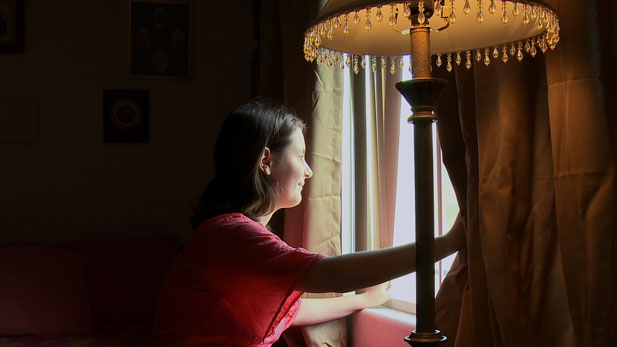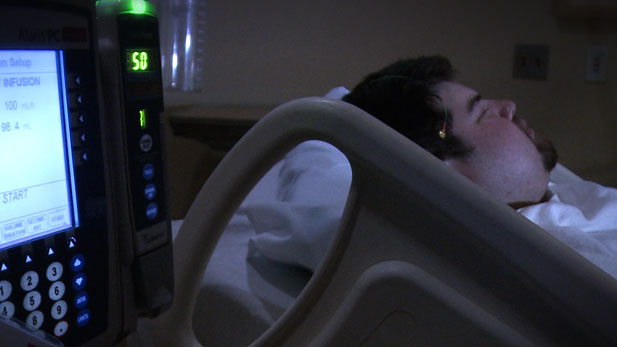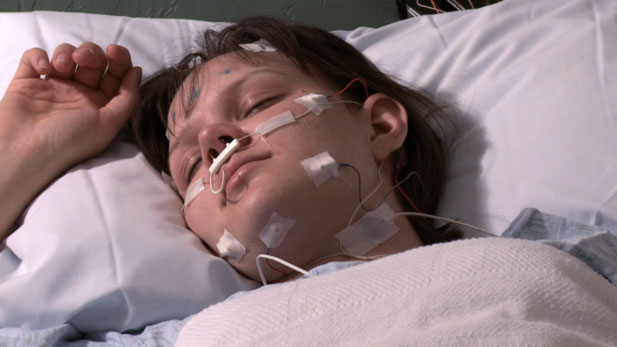Human beings spend more than one third of their lives asleep. What really happens while we sleep? We know we need sleep, but why is it so important?
INSOMNIA
 WaveLengths looks at procedures that help a sleep deprived young woman.
WaveLengths looks at procedures that help a sleep deprived young woman.A University of Arizona psychology professor is a leading authority on insomnia. He wrote the book on treatments for insomnia that are being used to help people all over the world. In the episode of Wavelengths, see how his procedures save a terribly sleep deprived young girl from falling apart.
ICU SLEEP STUDY
 WaveLengths looks at new tactics in making the ICU sleep friendly.
WaveLengths looks at new tactics in making the ICU sleep friendly.A hospital’s intensive care unit is a very busy place. Critically ill patients need 24-hour care and constant monitoring. With so much happening, patients don’t get much sleep. Studies show that more than 60 percent of discharged patients say they were sleep deprived during their ICU stay. However, one doctor is implementing some new tactics in hopes of making the ICU more sleep friendly.
SLEEP APNEA
 Patient during sleep apnea monitoring.
Patient during sleep apnea monitoring.Sleep apnea results in abnormal pauses in breathing that can last 10 to 30 seconds or longer, each pause is called an apnea. It can lead to daytime sleepiness and concentration problems. Most people don’t know they have it however; it can be diagnosed with an overnight sleep test. It’s estimated that twenty million Americans suffer from sleep apnea unfortunately; it’s a problem that is becoming more widespread.
DOWN SYNDROME SLEEP STUDY
 WaveLengths looks at a Down Syndrome sleep study
WaveLengths looks at a Down Syndrome sleep studyOne researcher hopes to make a difference in the lives of children with Down syndrome. These children often have trouble sleeping and many have sleep apnea. She is looking at the correlation between their sleep problems and their ability to learn during the day, and how a good night’s sleep could improve their lives.
Monday at 6:30 p.m. with an encore at 10:30 on PBS-HD.

By submitting your comments, you hereby give AZPM the right to post your comments and potentially use them in any other form of media operated by this institution.